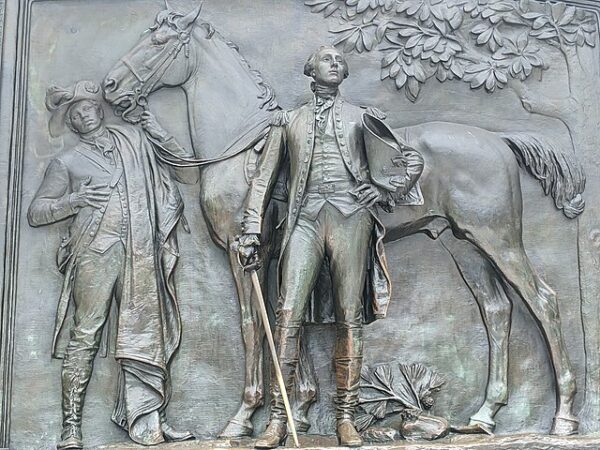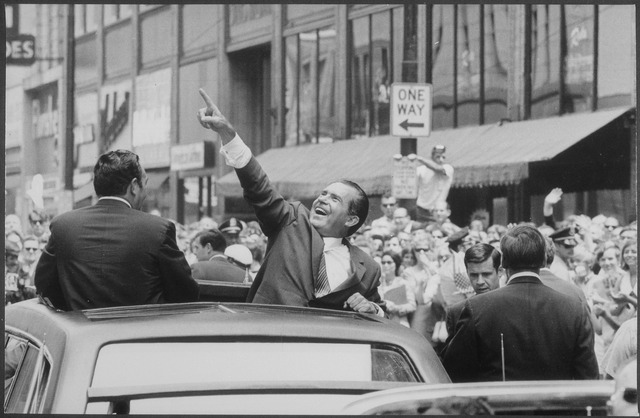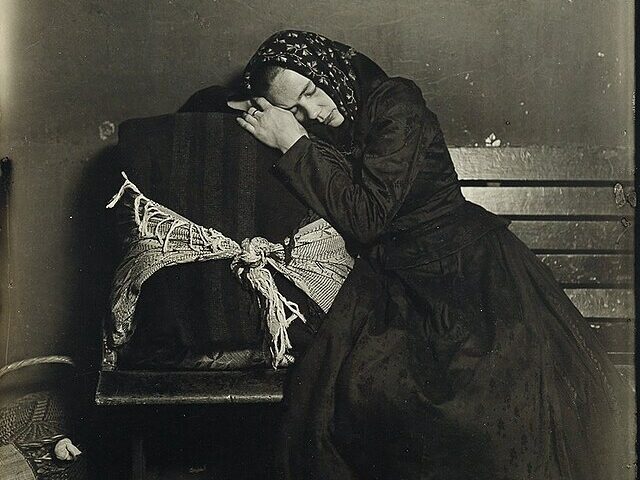On July 31, 1777, a 19-year-old French aristocrat, Marie-Joseph Paul Roch Yves Gilbert du Motier, Marquis de Lafayette, received a commission, without pay, from the Continental Congress making him a major-general in the Continental Army.
Lafayette had developed a great interest in the colonial conflict in North America. In April of 1777, Lafayette embarked on the Victoire—a ship paid for with his own funds— and headed toward North America, desperate to serve as a military leader in the Revolution despite a royal decree prohibiting French officers from serving in America.
Simply called Lafayette, notes The Daily Dose, “many in Congress regarded this commission as merely honorary, but Benjamin Franklin wrote to George Washington recommending Lafayette to become his aide-de-camp, hoping it would influence France to commit more aid. Lafayette expected he would be appointed a full-fledged commander who would control of a division, but Washington reluctantly informed him that command of a division would not be possible as he was of foreign birth. However Washington said that he would be happy to hold him in confidence as ‘friend and father’ and the two men formed a bond that would last a lifetime.”
Lafayette quickly proved that he would be more than just a mere ornament, however. Soon he gained the trust and admiration Washington, who recognized his military acumen and determination and soon gave him command, making him one of the youngest generals in the Continental Army. Lafayette’s first major battle was at Brandywine, where he demonstrated bravery and leadership despite being wounded.
Lafayette played a significant role in several crucial engagements throughout his service, including the Battle of Yorktown. His strategic support and leadership during this decisive battle in 1781 helped secure the surrender of British General Cornwallis, effectively ending the Revolutionary War. Lafayette’s efforts were not only instrumental on the battlefield but also served to strengthen the diplomatic ties between France and the fledgling United States.
Beyond his military accomplishments, Lafayette also became an advocate for human rights and liberty. He maintained a close friendship with prominent American figures like Thomas Jefferson and Benjamin Franklin, influencing their views on freedom and democracy. Lafayette’s contributions did not go unnoticed, and he became a symbol of the Franco-American alliance and an inspiration for future generations of revolutionaries both in America and around the world.
After the Revolution, notes The Battlefield Trust, “Lafayette returned home to France where he continued to fight for liberty and equality for all mankind, in the midst of the French Revolution. He bore witness to the Tennis Court Oath and the Storming of the Bastille, where he managed to get his hands on a key and send it to Washington’s Mount Vernon home as a gift, where it resides to this day, and even helped design the modern French tricolor flag. More importantly, Lafayette authored the Declaration of the Rights of Man with Emmanuel Joseph Sieyès and some input from Thomas Jefferson, one of the most important documents in world history, and a direct influence on modern democratic principles across the world.
Not even Lafayette could escape the tumultuous of the Revolution, however, and though he himself escaped the Reign of Terror, his wife, Adrienne, was arrested, and most of her family was executed. Lafayette instead fled the country, but was captured by France’s Austrian adversaries, and languished in Olmütz Prison until 1799, when General Napoleon Bonaparte secured his freedom. Napoleon offered Lafayette membership into his new Légion d’Honneur and might have even offered him a marshalship had he been so inclined, but Lafayette chose instead to retire from politics, and did not participate in Napoleon’s future conquests.
In 1824, he returned to the U.S. for a grand tour in which the people of every city he visited greeted him with cheers and exuberant celebrations. He also took time to visit his old friend Jefferson at his home in Monticello. When he finally passed in 1834, he made a final wish to be buried under soil taken from Bunker Hill in Boston. For his involvement in both America and Europe, Lafayette has been remembered as ‘The Hero of the Two Worlds.’”






